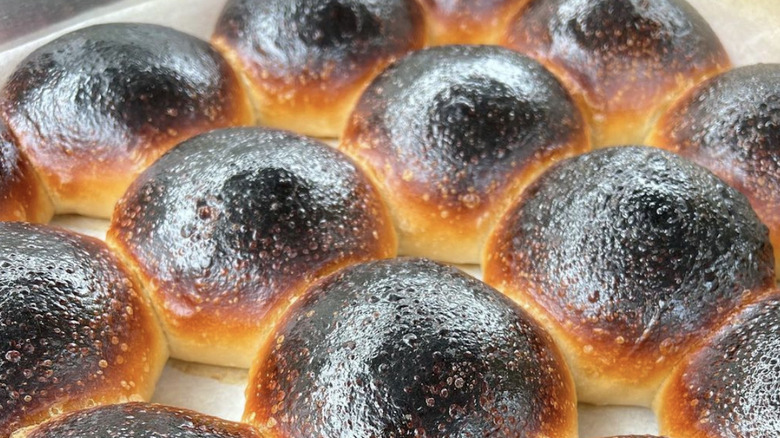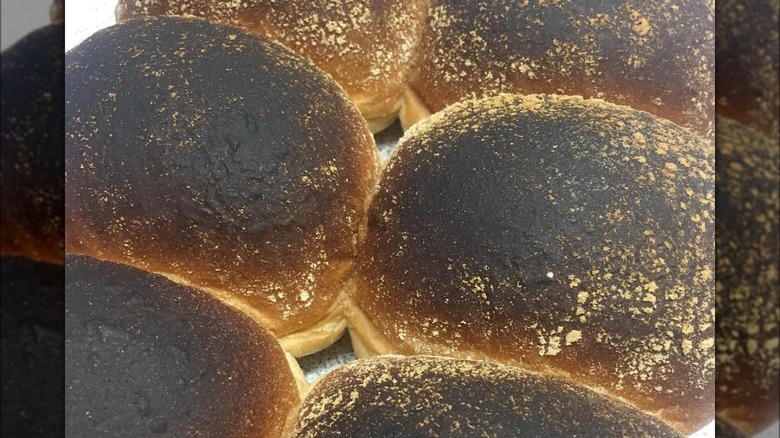Scottish Well-Fired Rolls Are Intentionally Blackened, And Worth A Try
If you think burnt rolls are doomed for the trash can, think again. In Scotland, blackened rolls are intentionally made and sold. Charred crusts on the surface of these airy, chewy buns have been consumed in the country for years, and the texture of the blackened rolls holds special appeal for bakers and buyers alike. The color of the tops (beyond high temperatures) is achieved because the dough used to make these rolls is spongier than most due to its inclusion of pre-ferment and sugar.
While some eaters can't get enough of the treats, others steer clear completely due to potential health concerns. In 2018, Scotland's Food Standards Agency issued a statement advising the general public to think twice about ordering well-fired rolls, and bakers were warned to follow practices that would reduce acrylamide, a chemical linked to cancer that has been found in well-cooked starchy foods. Such warnings did little to sway fans of the charred treats, however. "When I'm in Hyde, I always pick up a dozen and some oven bottoms for my son and husband ... when they sampled one, they became dependent on them," one lover of the well-fired delicacy admitted to Scotland's News 18.
Burnt buns for morning sandwiches
Well-fired rolls were originally placed at the top of ovens by bakers and would turn black as ovens cooled to the temperatures needed to bake other doughy delights. At the time, these rolls were simply set aside and sold more cheaply than other morning rolls, yet as the charred rolls increased in popularity, the burnt pieces were no longer viewed as afterthoughts of morning baking efforts and became intended recipes in their own right.
If you're unsure about rolls left in the oven for extra cooking time, try sampling a traditional batch of Scottish rolls. Scottish rolls made without blackened surfaces have their own appeal, as the savory-sweet baked goods are tough enough to hold sandwich ingredients, and the contrast of a crisp crust and delicate, fluffy interior offers a pleasant eating experience with or without charred surfaces. Because recipes for Scottish buns take several hours to make (at least three hours is needed to proof dough), mornings must be scheduled accordingly if you're hoping to serve breakfast hot and fresh out of the oven. Many bakers start the recipe the night before and let the kneaded dough sit overnight so that in the morning, rolls can be shaped, baked, and blackened as desired. Filled with bacon, fried eggs, and slatherings of ketchup, the taste of well-fired rolls may be an experience that you, too, learn to crave.

